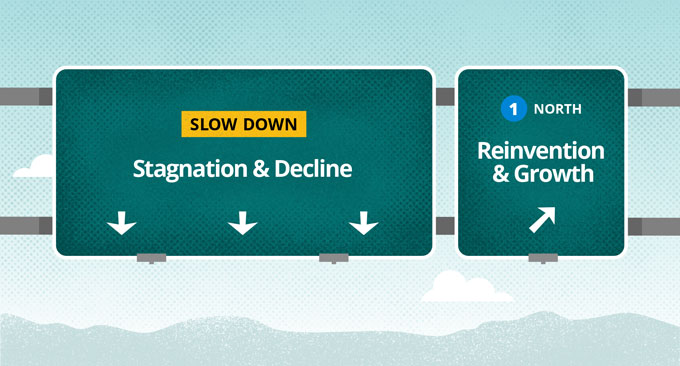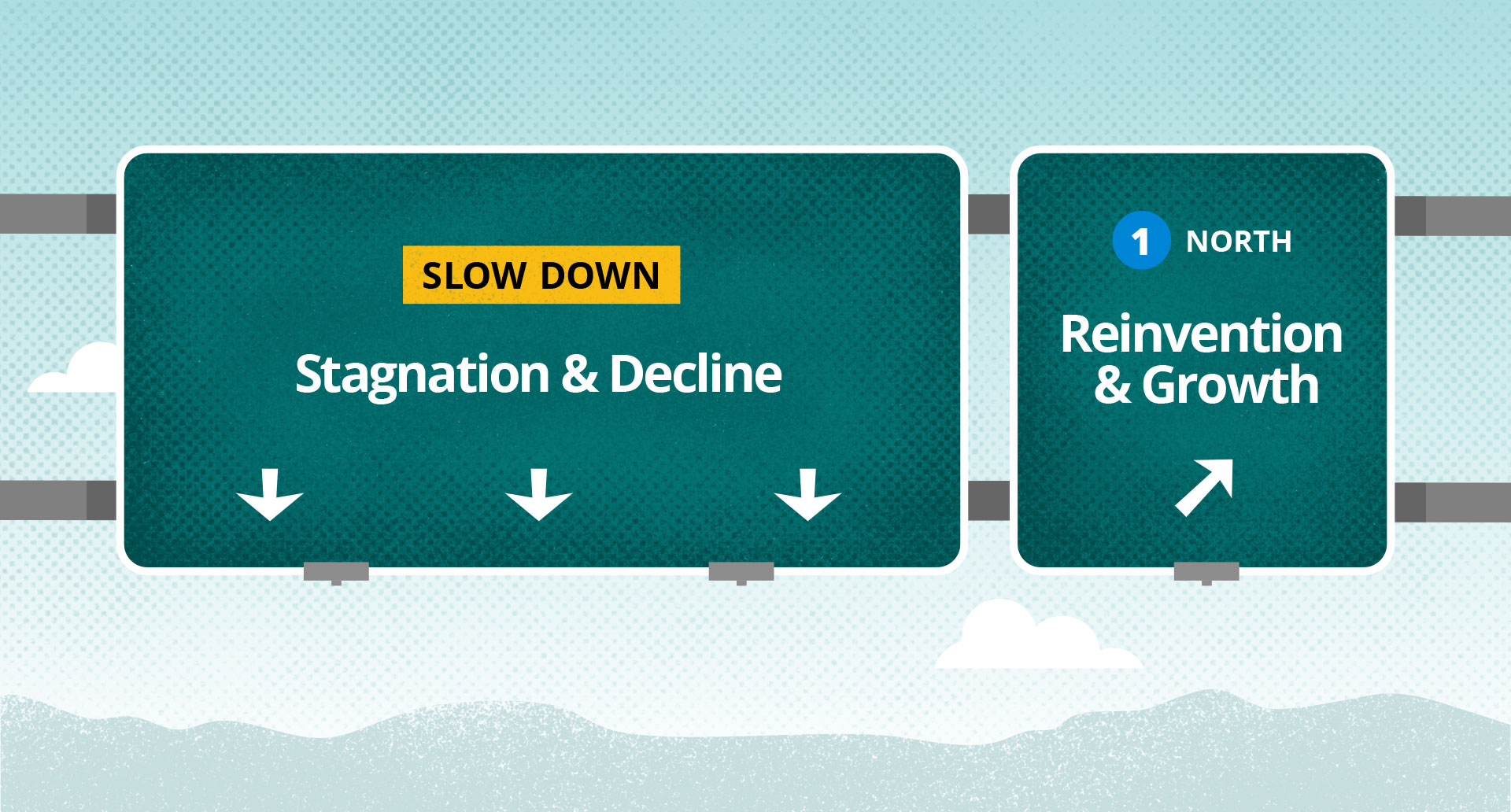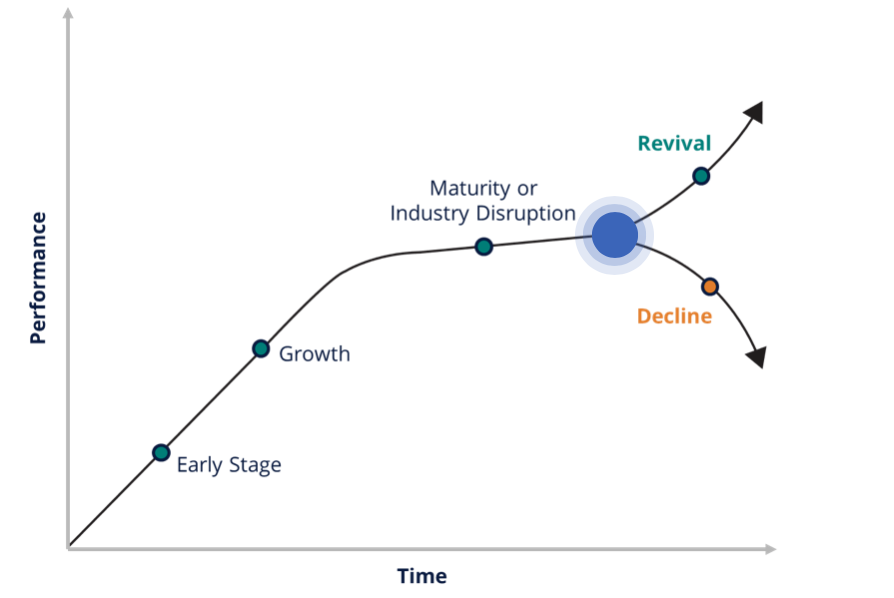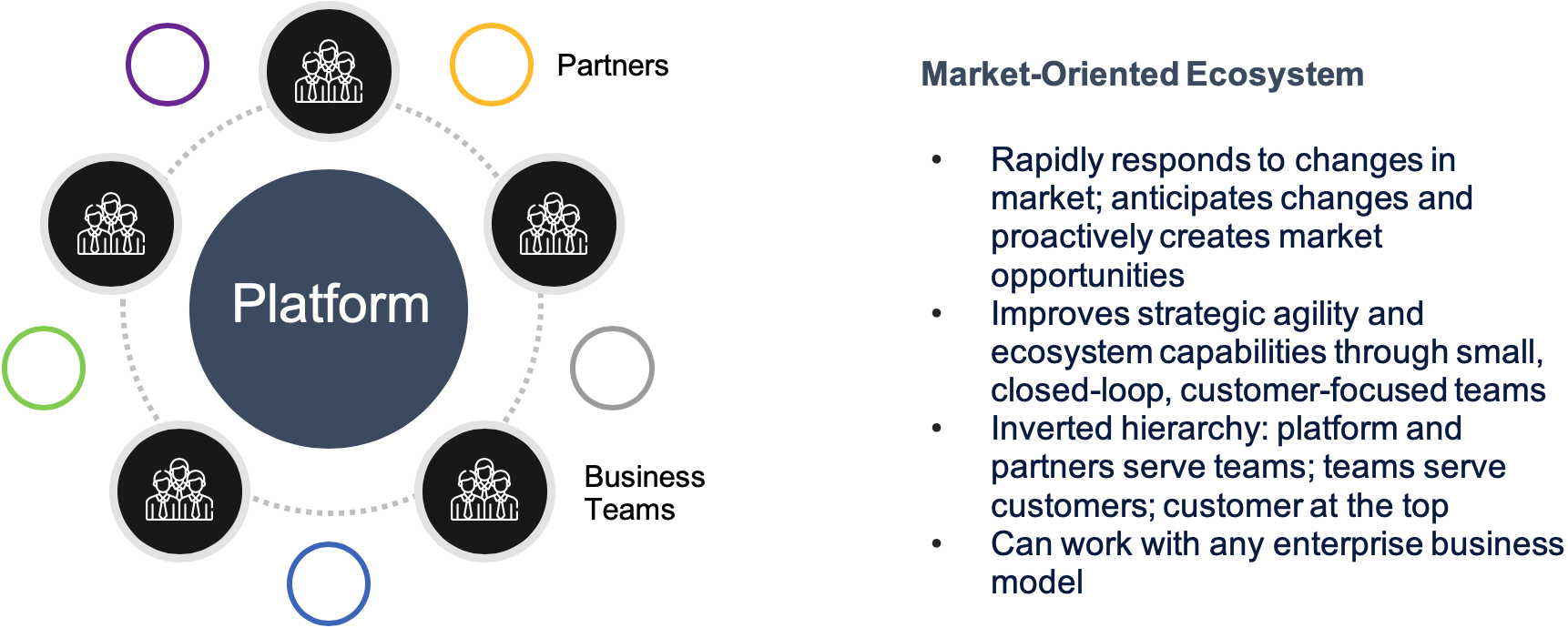Business Reinvention that Accelerates Growth
Key Takeaways:
- Innovative companies have disrupted the way businesses are organized.
- Traits from these disruptors can be adapted in other sectors.
- Once adapted, reinvention can accelerate business growth from 20-50 percent.

Business Reinvention that Accelerates Growth

Related Insights
All successful businesses face flattening growth during their business lifecycles. The more successful the company, the harder it is to respond to slower growth and begin reinvention. The business has typically built strong technical and cultural capabilities combined with committed leaders and employees to continue what has made it successful in the past.
In our experience, many leaders respond too late and begin reinvention in the midst of decline. During decline, there isn’t a lot of time to reinvent (focus is on cost reductions which often accelerate decline) and it’s hard to afford business reinvention work due to shrinking margins and revenues. Business reinvention should be started earlier during the maturity and early industry disruption phase.
Figure 1 depicts a typical business lifecycle S curve, from early stage to rapid growth, leading to maturity and entrants that begin to disrupt, then to the inflection point of decline or revival.

The question to consider is where is my company today in this lifecycle? And what is our need and urgency for reinvention?
This article is for those who must lead to reinvent their business in order to accelerate business growth. We believe that no company will be immune to the need to reinvent with urgency. This belief is based on our research that demonstrates that the amount of disruption across industries is accelerating:
| Hospitality | Airbnb owns no hotel rooms and offers more lodging than any hotel chain. |
|---|---|
| Automotive Rental and Taxi | Uber/Didi ride sharing platforms. The largest taxi companies own no cars. |
| Self-Driving Cars | The car that now transports you does not have to have a driver. |
| E-commerce, online shopping | Continues to rapidly expand, reinvent the retail model, and provide extraordinary shopping experiences. The store where you shop often has no physical footprint. |
| Education | Massive open online courses and other forms of digital learning are making quality education universal. The setting where you learn might no longer be a classroom. |
| Financial Services | All forms of banking are being disrupted. |
| Health Care | Vertical integration, technology, and consumer education are reshaping the healthcare playing field. Many health care interventions can occur online with a medical professional while sitting at home. |
| Semiconductor Equipment and Services | Technologies like blockchain, cloud data, big data, predictive analytics, robots and AI are reshaping the technology. |
| Consumer Products | Innovations in product, sustainability, channels, ecommerce and digital capabilities are transforming the CPG landscape. |
In the latest book, Reinventing the Organization (Harvard Business School Press, 2019), Dave Ulrich, our RBL colleague and co-founder, and Arthur Yeung identified the most innovative and successful global organizations over the last ten years. These new economy companies include:
- China- Alibaba, Tencent, Huawei
- USA- Amazon, Facebook, Google
- Europe- Supercell
Dave and Arthur interviewed senior leaders of these organizations to understand how they approach strategy, capability, governance, organization design and leadership development. This research provides insights about how these new economy companies reinvented to achieve innovation, growth, and market leading valuations.
Coming out of this research, RBL has identified specific capabilities these organizations created which can be learned and adopted by others who are trying to reinvent their business and accelerate business growth to better compete in the new economy. These high market value businesses developed critical capabilities to:
- Scan and respond to trends that could be opportunities or threats (external sensing)
- Build new capabilities such as agility, innovation, and customer obsession
- Utilize organization principles based on “market-oriented ecosystems”
- Enable leaders to contribute differently by shifting their approach from hierarchy to ecosystem management.
They organize around a Market-Oriented Ecosystem—a novel way of designing organizations to be both small (independent cells) and large (ecosystems), innovative (new market insights discovered in market-oriented cells) and learning (sharing information across cells).

We have distilled these principles into guidelines and methods to adapt your reinvention approach to accelerate business growth by 20 to 50 percent, or even more, and achieve higher market valuation through greater investor confidence in your future. We are excited to share what we learn from our clients with whom we are working to apply these ideas, as well as share key principles about how Amazon, Google and Alibaba lead, organize, and govern so that they delight customers and outperform industry peers.
Reinventing your business means understanding what the disrupting companies do and then adapting your practices to transform your leaders and your business.
RBL can uniquely share how these insights can benefit your organization in your efforts to proactively transform in the age of disruption. If you want business reinvention, RBL can help:
- Assess where you are against the Growth Maturity Model
- Diagnose and assess your need for business reinvention against the six dimensions of reinvention
- Partner and consult on ways to build specific capabilities and organization designs that improve ability to manage and grow through a market-oriented ecosystem
- Provide executive and leadership education to key principles and approaches to innovation growth capabilities that ensures reinvention is sustainable
Positioning your organization early and anticipating the need for revival instead of reacting to decline creates greater confidence with investors, customers, and employees. RBL can help you transform your business. Learn more about our strategy integration and business design offerings and let us know how we can work together.

